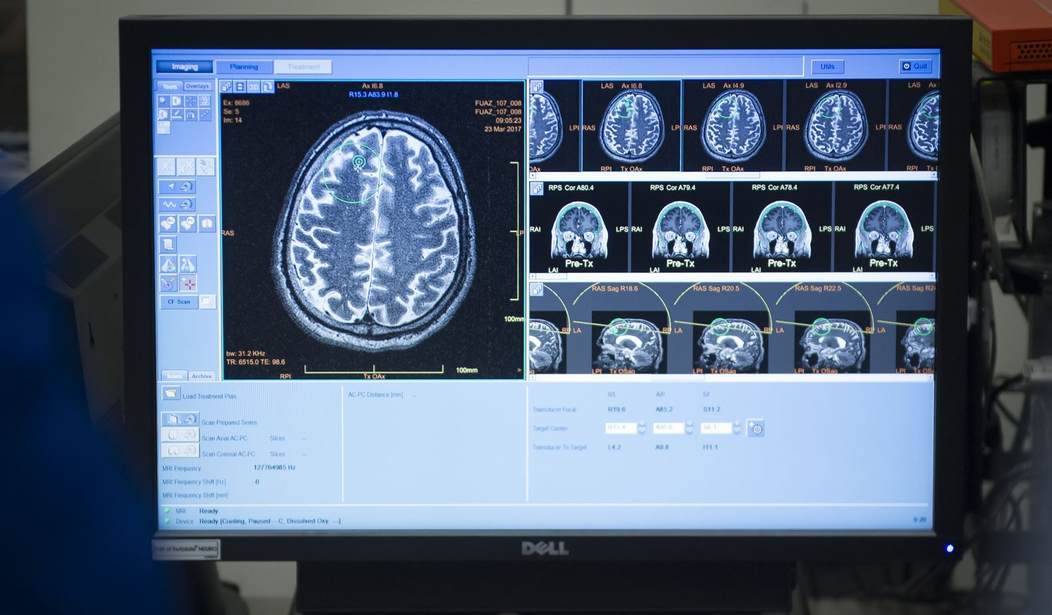At a recent get-together of friends, I began catching up with someone I hadn’t seen since before the pandemic shutdowns. I was surprised to see the decline. It seems doctors had told him he had Alzheimer’s disease. Sadly, he is not the first person I’ve known with such an onset beginning in their 50s and 60s.
The disease is fatal in more ways than one, and I recommended a book I had just completed: “Brain Energy: a Revolutionary Breakthrough in Understanding Mental Health and Improving Treatment for Anxiety, Depression, OCD, PTSD, and More” by Christopher M. Palmer, MD.
I was alerted to the book by a podcast at Optimal Work. They called the book a daring attempt to formulate a unified theory on the causes of mental illness. With American culture racked with suicide, addiction, and mental instability, it is a timely issue. In the last year on record, America set its highest annual suicide rate ever, and it is the 11th leading cause of death in the country. Mental illness is at a crossroads.
Dr. Palmer’s book is divided into two sections. The first and longest covers the science in great detail — and the second looks at how to apply the science in your life. Dr. Palmer said his publisher originally only wanted the second section, but he felt it important to detail the scientific basis for his claim that metabolism may be the linchpin linking all mental illnesses. It may impact even more than a person’s unchangeable genetic makeup.
He doesn’t make the claim that current approaches lack value. Rather, his book is a cry from the heart, a lament for all the people he has been unable to help through his many years of psychiatric practice.
He compares metabolism to the flow of traffic in a big city. While we may be stuck in a traffic jam in New York City, the view from the top of the Empire State Building shows many cars and trucks moving toward their destinations. Some move slower, others faster on streets and highways. There also may be traffic accidents, detours, and stoplights.
He writes, “…illnesses and symptoms are like traffic jams. Either traffic isn’t flowing optimally or is stopped altogether. One Highway might represent the pancreas. An access road might represent a specific brain region that controls attention and focus.… The areas of the city with regular traffic problems represent ‘symptoms’ or ‘illnesses’ — places where traffic isn’t ‘working’ properly.”
He adds, “In humans, these three things — development, function, and maintenance of cells, ultimately depend upon one thing: metabolism… If the problems are significant enough, there will be ‘symptoms.’”
He compares it to the delirium many people experience after surgery. No one presumes this is a permanent state of mental illness. It is a temporary imbalance, which may pass either with mild treatment or no treatment at all. We don’t accept it as an unalterable fact but something subject to change. As the body strengthens, the normal working of the brain is restored.
Often, people who are depressed don’t have the energy to do things. Dr. Palmer argues that in some cases, they really don’t have the energy to do things, which can make them depressed. People who are overweight may eat because they lack energy, and being overweight then diminishes their energy, creating a depressing cycle of imbalance.
Dr. Palmer argues that metabolic failures lie behind many of the various manifestations of mental illness or deterioration. He cites many studies and believes focusing on correcting the imbalance in the metabolism can help many people improve their mental health. He sees restoring brain energy as key and thinks the current model, which assumes many problems are permanent states, is flawed.
As with delirium, many issues will resolve themselves by restoring metabolic function. To use his analogy, clearing up metabolic traffic jams may help many people restore the brain energy they need to function well.
He gives examples from his practice. He is not arguing that current medical practices are ineffective but thinks many of them are effective precisely because the side effect of their treatment is to restore metabolic brain energy.
He sees brain energy as the missing link. The more we understand its connection to mental health, the better we will be able to supplement or in some cases, replace traditional approaches and the surge in medication use.
Related: 17 People Died on One Military Base Just This Year, but the Air Force Won’t Say Why
This book is his attempt to answer questions such as why some medications work with one person and not another. Why do genetically similar people have different susceptibility to addiction or mental illness?
The book is well worth reading for anyone facing these real-life issues for themselves, friends, or family. As Dr. Mark Hyman wrote in his endorsement on the cover of the book, “’Brain Energy’ Is a dramatic breakthrough in understanding mental illness by a leading Harvard psychiatrist who provides a revolutionary roadmap for people suffering from depression, anxiety, bipolar disease — in fact, almost any brain disorder.”










Join the conversation as a VIP Member